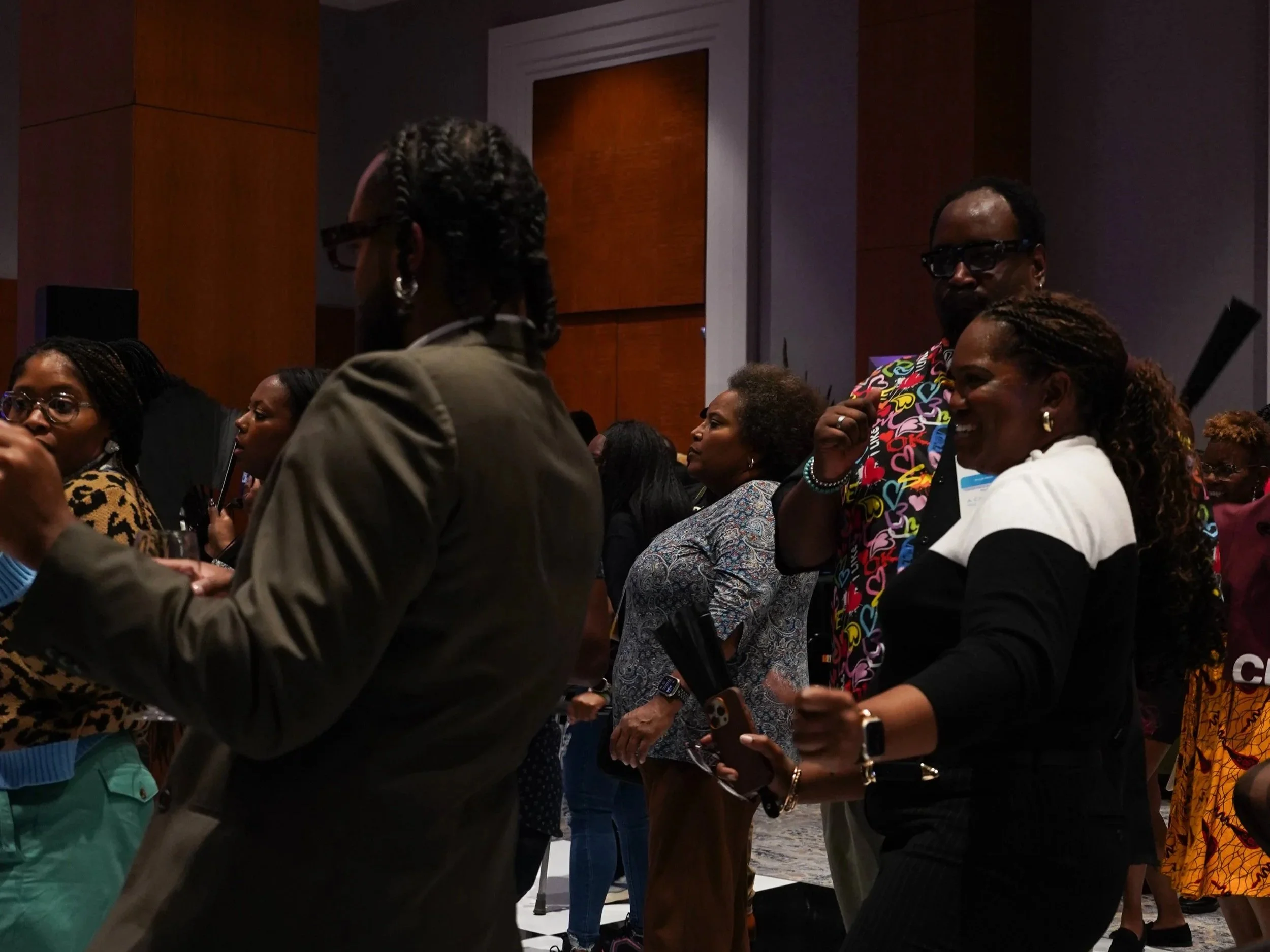State of Black Health 2025: Reflections on Defining Health Equity in a Time of Chaos
This year was my second time attending the State of Black Health Conference, a biennial gathering that brings together some of the sharpest minds, boldest voices, and most dedicated advocates for Black health. My first experience was in 2023 in Puerto Rico, and two years later in Charlotte, North Carolina, I made space for this professional gathering, knowing that it is both a celebration of joy and a serious strategy session for how we will continue to thrive, protect, and define health equity for our community.
Beneath all of the joy on display lies the truth that we gather in a time when rights are being stripped away, and the current political chaos disproportionately affects the Black community as policy always does. Our presence here was both an act of resistance and a commitment to envisioning a healthier, more equitable future.
Key Takeaways from the 2025 State of Black Health Conference
Health is Power: Equity isn’t accidental—it’s shaped by how power is created, used, and shared.
Healing is Resistance: Rest, joy, and self-care are deliberate acts against white supremacy.
Shift the Blame: Poverty and poor health outcomes are policy-based, not personal failures.
Cultural Roots Matter: Concepts like Sankofa and weathering help us understand both the past and present impacts on Black health.
Silence is Not an Option: Lasting systems change requires speaking out and taking action.
Why Charlotte, Why Now
On the first day of the conference I learned that choosing the Queen City of Charlotte was very intentional. Once home to Logtown (later Brooklyn Village), a community founded by emancipated slaves, the city grounds our work in both history and possibility. As speaker Valerie Kinloch reminded us, “Education is not just about what we do in the classroom—it’s about what we do in the world.” This conference, specifically, is where education meets action.
Defining Health Equity on Our Own Terms
Across plenaries and workshops, we were reminded under the theme “A Call for Health Justice” that health equity is not accidental—it is shaped by power.
Natalie S. Burke’s session, Reimagining Public Health: A Bold Futurist Conversation, challenged us to rethink how formal, informal, expert, experiential, and cultural power are used. Power, she reminded us, can heal or harm.
Matthew Mills emphasized that poverty is policy-based, urging us to shift blame from individuals to the systems that limit choice, whether it’s the clustering of tobacco shops in Black neighborhoods or environmental hazards that erode wellbeing.
Jannah Bierens reframed racism itself as a public health practice, pushing us to see equity as an ongoing process that requires reimagining, redistributing, and relinquishing power.
These messages all capture what Natalie S. Burke asserted:
“Black health is a barometer. The future of health equity depends on shifting and gaining power.”
Healing as Resistance
Amid the policy and power conversations, we also heard profound reminders that healing itself is a radical act. Justin J. Pearson declared, “Taking care of ourselves and our health is a deliberate act against white supremacy.” Rest, too, was named as resistance and an assertion that survival and wellness are not passive, but political.
Concepts like weathering (the cumulative toll of racism on Black women’s health) and Sankofa (the Akan principle of looking back to move forward) connected our struggles to both science and culture. Trauma, we were reminded, is not simply a past event. It lives in our bodies, shapes health outcomes and mortality rates, and is the cause of chronic stress. And so, our work is as much about dismantling oppressive systems as it is about centering rest, joy, and communal healing.
Above all, I left with this refrain in my spirit: “We’ve never seen systems change with silence.” Now is the time to speak up, take action, and affect change within our community.
Moving Forward
The State of Black Health Conference reminds me that health equity is not just a professional pursuit, but it is a community mandate. Our survival, our joy, and our brilliance require us to both critique systems and create new ones. Political engagement is public health policy. Healing is resistance. And thriving in the midst of chaos is the ultimate act of defiance.
As we move forward, the charge is clear: speak up, step in, and reimagine what’s possible. Our communities will not feel powerful until we speak into them, and this conference was one resounding step in that direction.





